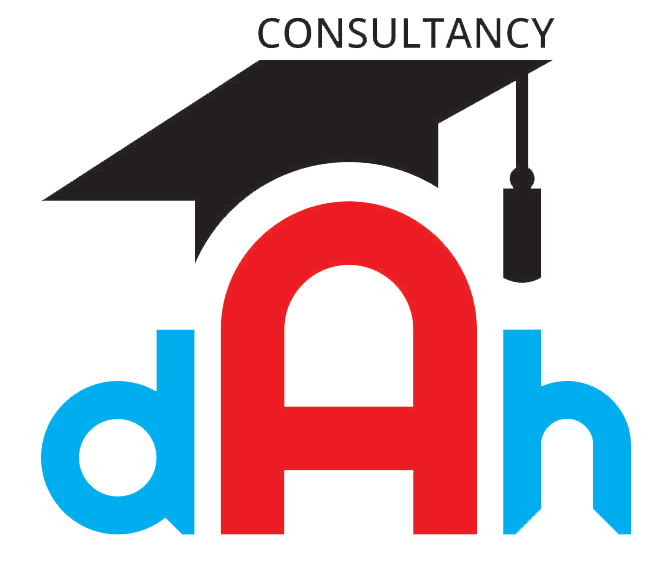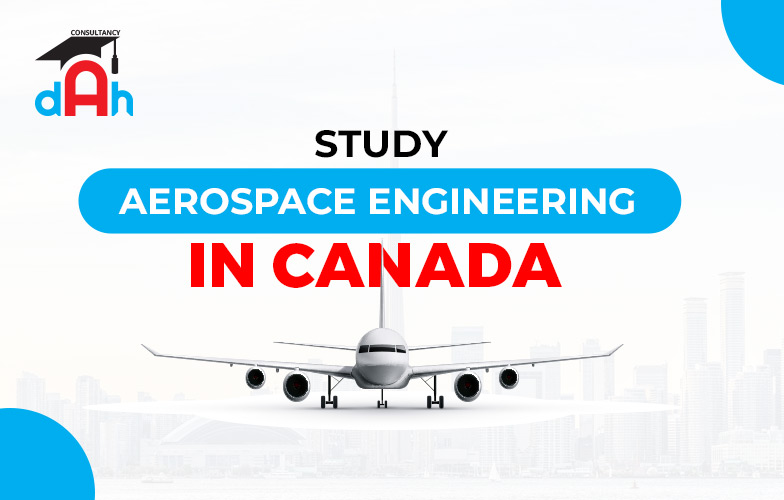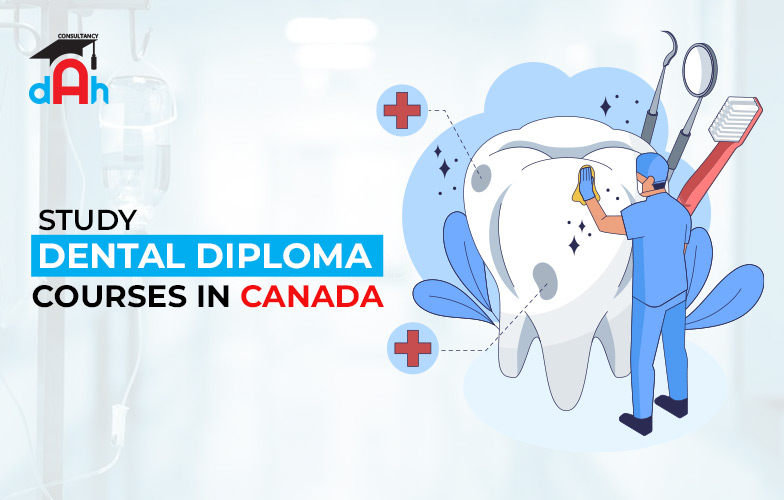What do we do if we doubt there is a problem with our health? Isn’t that obvious? We’d be seeking pharmaceuticals or perhaps a doctor, who is everyone’s necessity.
Medical research has progressed since then, people relied on herbs during ancient times, and there is now a variety of technology available for health and medicine. It would be a good idea for Medical Study in Canada, as Canada is ahead of other countries in terms of education and development.
Why Study Medicine in Canada?
There is no doubt that Canada has progressed in every way. But what sets Canada apart from other countries? Let me respond to that: Canada offers a unique natural beautiful environment to live in and education like no other, thus students from all over the world choose Canada as a study and living destination.
Canada offers an excellent educational system that allows you to enjoy your studies while also receiving an education that you will not obtain anywhere else. Medical study in Canada is a fantastic opportunity that should not be passed up. Some of the reasons you might consider studying medicine in Canada are as follows:
1. Intellectual and Practical Expertise
Canadian universities and colleges provide internationally recognized education. In the long run, the medical degree obtained from Canadian Education Institutions will aid students in acquiring better job opportunities all over the world.
Many of the world’s greatest academic institutions are situated in Canada with students educated by prominent professors. Also, courses for Medical study in Canada focus on both intellectual and practical expertise.
2. Affordability
Canada not only offers a world-class education system, but it is also very inexpensive. Medical study in Canada is not expensive. In addition to reduced tuition and living expenses, Canada provides a range of scholarships for medical students as well.
Canadian Universities and Colleges provide a wide range of educational opportunities that are both affordable and accessible to students.
3. Work While Studying
While their Medical study in Canada, international students are permitted to work part-time as they study. They can work 20 hours a week as a paid employee or intern. This will help students in reducing their daily expenses and also gain medical expertise.
Overseas students are compensated hourly for their work. However, in order to work in Canada or accept government benefits, students must get a Social Insurance Number (SIN). It is a nine-digit number that is only assigned to one individual.
4. Unlimited Work Opportunities
For students studying medicine in Canada, the nation offers a diverse range of alternatives. From entry-level occupations to high-level professions, Canada provides everything you need to prosper while you’re here.
Not only may you work part-time while studying, but you can also work full-time once you finish your education since Canada permits you to stay in the country for three years.
5. High-Paying Jobs
Even after finishing their studies, Overseas students in Canada can stay and work for a defined period of time, shaping their careers and earning a respectable wage.
Canada provides a diverse range of medical opportunities for you to pursue, many of which are well-paying. Which is one of the reasons you should choose Medical study in Canada.
6. Internationally Recognized Medical Degree
A medical degree from Canada provides globally recognized practitioner training. Accredited degrees are offered by medical institutions in Canada to broaden the area of investigation.
Medical courses in Canada are delivered by knowledgeable and highly educated professors. Also, Medical study in Canada is highly regarded due to its international standing.
7. Advanced Health technology
Canada is technologically advanced, and this includes health technologies. Canada attracts a huge number of students each year for Medical Study in Canada due to its innovative programs and research.
Not only is Medical Education in Canada ahead of the trend in terms of new concepts, but so are equipment and pharmaceuticals for patients to use and students to learn.
Bachelor in Medical Study in Canada
Medicine is a vast subject that no one individual could ever fully comprehend. Dentists, Cardiologists, Neurologists, Gynecologists, Anatomists, and others specialize in various aspects of medicine. In Canada’s vast area of medical studies, students can pick from a variety of specializations.
When it comes to exploring it, some students go for blood, tissue, or skin, while others opt for a specialty that focuses on other factors. Internal organs are the focus of some researchers, whereas external organs are the focus of others.
In Canada, there are several medical specialties at the bachelor’s level, each with its own educational route. Some of them include,
1. Study BSc Nursing in Canada
The B.Sc. nursing degree is well-known across the world since it offers both nursing science and humanities principles. A B.Sc. (Bachelor of Science) in Nursing is a professional curriculum. Candidates must complete 10+2 with Physics, Chemistry, and Biology as needed topics to achieve the minimum eligibility criteria for B. Sc. nursing. Admission requirements for international students to the B. Sc. nursing degree require the passing of many entrance exams. For Medical Study in Canada, you’ll need a minimum of 6.5 on the IELTS Proficiency Test and a TOEFL score of 90-95.
Nursing Superintendent, Community Health Nurse (CHN), Home Care Nurses, and Military Nurse are some of the employment options available after completing a bachelor’s degree in Nursing in Canada.
2. Study MBBS in Canada
The MBBS (Bachelor of Medicine, Bachelor of Surgery) degree in Canada is a professional undergraduate degree that focuses on preparing you for a future in medicine. Anatomy, Biochemistry, Physiology, Pathology, Microbiology, and many more areas are covered within an MBBS program. The IELTS English proficiency exam score of 6.5 or a minimum of 6 is required for MBBS study in Canada, as is a TOFEL score of 80.
Anesthesia. ENT. Anatomy, General Surgery, and Clinical Pathology are just a few of the career prospects in the medical field available after completing an MBBS.
3. Study Doctor of Medicine (MD) in Canada
Doctor of Medicine in Canada is a program in Science and Medicine that allows you to specialize in the medical field and finally obtain a medical degree. Many top-ranking universities and colleges in Canada offer programs to study Doctor of Medicine.
To study for a doctorate in medicine in Canada, students must have an IELTS score of 6.5 and a TOFEL score of 85 on average, while some universities require a score of 90 or higher.
Radiology, Medicine, Orthopaedics, Anatomy, Forensic Medicine, Obstetrics, Gynecology, and Paediatrics are among the medical specializations that you might pursue after completing your Medical Study in Canada.
4. Study Bachelor of Dental Science (BDS) In Canada
Bachelor of Dental Science in Canada is the study of dentures, gums, and the human mouth as a whole. Students studying dentistry learn about the origins, prevention, treatment, and diagnosis of oral and dental disease. Dentistry studies cover anatomy, physiology, and biochemistry, as well as practical skills including taking a medical history, performing dental examinations, orthodontics, and anesthesia.
To Study Dental Science in Canada, you must take many examinations and exams, and you must have an average IELTS English Proficiency score of 6.5, but most universities require 7 with some requiring 7.5. And the TOFEL score must be at least 85, with some Canadian Universities and Colleges requiring scores of 90 or higher.
Dentistry offers a wide spectrum of specialties due to its highly specialized skill sets. Students can choose between Dental Nurses, Hygienists, Therapists, Technicians, or Assistants as a career path.
5. Study BSc in Food Tech in Canada
BSc in Food technology in Canada is an area of food science that deals with food product manufacturing, conservation, product testing, and research & innovation. Food preservation was the focus of early scientific study into food technology. Students learn everything there is to learn about food.
To pursue a bachelor’s degree in food technology in Canada, you must score at least 6.5 on the IELTS English proficiency test and 85 on the TOFEL.
After studying food technology, you can work as a Food scientist/Technologist, Nutritional therapist, Quality Assurance manager, Toxicologist, or Chef in Canada.
6. Study Bachelor of Pharmacy In Canada
Bachelor of Pharmacy In Canada is a subject that deals with the preparation and delivery of medications. A Bachelor of Pharmacy degree will need you to spend time in laboratories researching and studying the chemistry used in medication production. Students seeking Pharmacy degrees will learn how different pharmaceuticals affect the human body and mind, as well as how they interact when combined.
To pursue a Bachelor of Pharmacy in Canada, students must have a minimum IELTS score of 6.5 (some colleges need 7) and a TOFEL score of 85.
Community pharmacists, Hospital pharmacists, Primary care Pharmacists, Researcher/academic pharmacists, and Drug Inspectors are just a few of those employed in Canada after completing pharmacy education.
7. Study BSc Radiology In Canada
BSc Radiology in Canada is a discipline of medicine that analyzes images of the body’s organs to diagnose disease. Radiologists are medical professionals who have received specialized training in the interpretation of medical pictures for diagnostic purposes, whereas radiologic technologists are medical imaging experts who utilize and maintain imaging equipment.
To study BSc Radiologist in Canada, you must have an IELTS score of 6.5 and a TOFEL score of 85 or above.
After earning a bachelor’s degree in radiology, you can pursue a career as a radiologic technologist, nuclear medicine technologist, MRI technician, ultrasound technician, or Cardiovascular Technician in Canada.
8. Study BSc Biotechnology in Canada
BSc Biotechnology in Canada is the use of genetics to solve problems and produce useful products. The genetic modification of therapeutic proteins and other drugs is the most obvious use of biotechnology. Experts in biotechnology are currently seeking to pinpoint the underlying biological causes of disease to intervene accurately.
A student must have a minimum IELTS English language Proficiency Test score of 6.5 on with a TOFEL requirement of 85 or above to pursue BSc in Biotechnology in Canada.
Research and development, quality assurance/regulatory affairs, manufacturing, clinical research, food animal, and environmental science are some of the job opportunities accessible after earning a Bachelor’s degree in biotechnology in Canada.
9. Study BSc Biochemistry in Canada
BSc Biochemistry in Canada, often known as biological chemistry, is the study of biochemical processes inside and relating to living organisms. Structure biology, enzymology, and metabolism are the three areas of biochemistry. It is a biological and chemical subdiscipline.
To study Biochemistry in Canada, you must have a band score of 6.5 on the IELTS English Proficiency Test, while some universities and institutions demand a band score of 7.
After earning a BSc in Biochemistry, you can work as an academic researcher, an analytical chemist, a biomedical scientist, a biotechnologist, or a forensic scientist, to name a few high-paying jobs in Canada.
Masters in Medical Study in Canada
Applying for a master’s degree in Medical Study in Canada might be challenging if you don’t know what curriculum you want to pursue or what kind of job chances you’ll have. In the field of medicine, Canadian institutes offer a variety of programs, some of which includes
1. Study Masters of Nursing in Canada
Nursing is a healthcare profession dedicated to assisting individuals, families, and communities in achieving, maintaining, or regaining maximum health and quality of life. Whereas, in Canada, a master’s degree in nursing is a one-of-a-kind medical education that is difficult to get.
For a Masters of Nursing in Canada, a candidate must have a TOFEL score of at least 90, since Canadian Universities and Colleges only accept the finest, with an IELTS score of at least 6.5, while many demands a score of 7 or above.
Certified Dialysis Nurse, Legal Nurse Consultant, Nurse Midwife, Nurse Anesthetist, Nurse Case Manager, and Nurse Educator are just a few of the various employment options accessible after completing a Masters Degree in Nursing in Canada.
2. Study Masters of Public Health in Canada
People working in the field of public health work to make sure people are healthy through a number of methods, from scientific research to health education. Studying Masters in Public Health promotes and protects people’s health as well as the health of the community, study, work, and play.
With the TOFEL score in the range of 90-100, Students need a strong academic score to get in.
Tracking disease outbreaks, avoiding injuries, and figuring out why some of us are more prone to sickness than others are all part of the Masters of Public Health in Canada. Some of the job opportunities are Community health, public health education, emergency management, epidemiology, and global health.
To learn more on this subject, you can read our blog on Study MPH in Canada | Masters of Public Health in Canada.
3. Study M.Sc in Nursing in Canada
A master’s degree in Nursing is a postgraduate degree for registered nurses that acts as a stepping stone to careers as nurse educators and managers. Medical study in Canada is a fascinating topic for students to learn about, with both a theoretical and practical M.sc Nursing degree.
Students can pursue an M.Sc of Nursing in Canada with a band score of 7 and a minimum of 6.5 on the IELTS English proficiency Test.
Nursing consultants, research nurses, nurse educators, nurse administrators, advanced nurse practitioners, and clinical nurse specialists are examples of employment attainable with an MSc in Nursing degree in Canada.
4. Study M.Sc. In Kinesiology & Health
MSc in Kinesiology in Canada is a sort of therapy that uses muscle monitoring (biofeedback) to look for disease-causing imbalances in the body. Kinesiology is a method for discovering and correcting imbalances in the body caused by stress, food, or minor accidents. Diagnoses are not made using kinesiology.
With a TOFEL score of 90 or above, Canadian colleges offer an MSc in Kinesiology. Some of the careers available to Kinesiology graduates in Canada include Kinesiologist, Dietitian, Athletic Trainer, Strength and Conditioning Coach, and Exercise Physiologist.
5. Study M.Sc. In Dental Science in Canada
The study of the mouth and disorders affecting oral tissues is known as dental science. M.Sc in Dental Science in Canada is designed to prepare graduates to provide a comprehensive spectrum of basic dental care, including the prevention, diagnosis, and treatment of oral and dental illnesses, in a safe and effective manner.
To secure admission to Dental Science programs in Canada, students should score at least 7 on the IELTS test.
After graduating from a master’ program in Dental Science in Canada, students can work in various fields such as dental hygiene, dental assisting, and orthodontics.
Diploma in Medical Study in Canada
Getting into a medical program in Canada can be challenging for most individuals. However, with the right guidance and support, you can easily complete the program and get into a Medical Specialty in Canada.
1. Study Diploma of Acupuncture in Canada
Diploma of Acupuncture in Canada is a type of alternative therapy that involves inserting small needles into the body. It is a component of Traditional Chinese Medicine. Acupuncture is a pseudoscience, and TCM’s ideas and methods have been labeled as quackery since they are not founded on scientific understanding.
You need to score a band of 7 maximum and 6.5 at least to do a Diploma in Acupuncture in Canada.
Prenatal care, cancer, and pain treatment are just a few of the topics covered for job prospects in this domain.
2. Study Diploma in Practical Nurse in Canada
Practical Nurses in Canada assist patients by providing basic nursing and medical care. Because of the nature of patient care, practical nurses in Canada do a range of jobs, depending on where they work and study. Common tasks include changing wound dressings, monitoring vital signs and documenting them in patient files, and delivering immunizations and other injections.
A least 6.5 bands in IELTS are required to study practical nursing in Canada, with some colleges demanding 5.5 or an overall score of 6.
As a practical nurse, you’ll work in places like hospitals, health care centers, home care, day nurseries, ambulances, rehabilitation institutes, nursing, and residential homes, assisted living, and various care units, where you’ll be in close proximity to people.
3. Study Advanced Diploma in Medical Radiation Technology in Canada
Advanced Diploma in Radiology in Canada is a medical specialty that examines pictures of the body’s organs to identify the illness. Radiologists are medical professionals who interpret medical images for diagnostic purposes, whereas radiologic technologists are medical imaging professionals who use and maintain imaging equipment.
To study Advanced Diploma in Medical Radiation Technology in Canada, you must have an IELTS score of 6.5 at a minimum.
After earning a diploma in Radiology, you can work as a radiologic technologist, nuclear medicine technologist, MRI technician, ultrasound technician, or cardiovascular technician in Canada.
4. Study Diploma in Kinesiology In Canada
Diploma in Kinesiology In Canada is the scientific study of human body movement. Kinesiology is concerned with the principles and mechanisms of movement as they relate to physiology, anatomy, biomechanics, and neuropsychology. While doing a Diploma, Kinesiology’s applications to human health include skill acquisition and motor learning, rehabilitation approaches such as physical and occupational therapy, and sport and exercise physiology.
To study Diploma in Kinesiology in Canada, a student must have an overall IELTS English Proficiency Test score of 6.5 and a TOFEL score of 90.
Some of the well-paying job opportunities in Kinesiology after Medical Study in Canada include research scientists, physical therapists, kinesiologists, and prosthetists.
5. Study Post Graduate Diploma in Nutrition, Health, and Sport In Canada
Canadian Universities and Colleges have diploma programs in nutrition, health, and sports for students to learn something simple yet interesting about daily life: Food, exercise, and fun are necessities of daily life and Canada focuses on it.
Also, you need to have an average of 6.5 but no less than 6 for the IELTS English proficiency test and 85 for TOFEL.
Some of the career opportunities after this diploma would be Athlete, Medical health practitioner, and nutritionist with well-paying Employment in Canada.
Top Medical Colleges in Canada
There are several Colleges in Canada that provide medical studies. And it’s no wonder that they’re all at the top of their game when it comes to providing students with intellectual and practical instruction to help them understand Medical Study in Canada.
Some of the colleges for Medical Study in Canada include:-
1. Georgian College
Georgian College, which was established in 1967 as part of the College System of Ontario, and is an Applied Arts and Technology College in Ontario, Canada. Medical study in this college has various programs to it, making it easier for students to choose from a wide range of prospects.
| Course | Course Level | Time Duration | Tuition & Fees (First Year) |
|---|---|---|---|
| Paramedic | Undergraduate Diploma | 2 years | CAD $13,000 to $15,000 |
| Dental Hygiene | Undergraduate Diploma | 3 years | CAD $13,000 to $15,000 |
| Practical Nursing | Undergraduate Diploma | 2.5 years | CAD $14,000 to $18,000 |
| Fitness and Health Promotion | Undergraduate Diploma | 2 years | CAD 14,000 to $18,000 |
| Veterinary Technician | Undergraduate Diploma | 2 years | CAD 12,000 to $16,000 |
2. Humber College
Generally referred to as Humber College, the Humber Institute of Technology and Advanced Learning, was established in 1967. It serves as a publicly-funded college in Ontario in the country of Canada.
Humber College’s Medical study in Canada has courses regarding medicine and nursing attracting international students from all around the globe.
| Course | Course Level | Time Duration | Tuition & Fees |
|---|---|---|---|
| Biotechnology | Diploma | 2 years | CAD 10,000 to $18,000 |
| Clinical research | Graduate | 1.5 years | CAD $10,000 to $20,000 |
| Paramedic | Diploma | 2 years | CAD $13,000 to $18,000 |
| Practical Nursing | Diploma | 2 years | CAD $13,000 to $17,000 |
| Pharmacy Technician | Diploma | 2 years | CAD $15,000 to $17,000 |
| Child and Youth Care | Diploma | 3 years | CAD 13,000 to $18.000 |
3. Conestoga College
Conestoga College, established in 1967, is one of Canada’s premier educational institutions. It is ranked among Canada’s top 100 colleges and has been rated the best on multiple occasions. Conestoga College of Ontario is the only college that provides a wide range of academic and vocational development initiatives.
| Course | Course Level | Time Duration | Tuition & Fees |
|---|---|---|---|
| Respiratory therapy | Diploma | 3 years | CAD $10,000 to $20,000 |
| Practical Nursing | Under Graduate | 4 years | CAD $15,000 to $20,000 |
| Biotechnology | Diploma | 2 years | CAD $14,000 to $17,000 |
| Fitness and Health | Diploma | 2 years | CAD $13,000 to $18,000 |
| Nutrition and food service Management | Diploma | 2 years | CAD $14,000 to $17,000 |
| Massage Therapy | Diploma | 3 years | CAD $13,000 to $17,000 |
| Mental Health and substance use | Under Graduate | 1 year | CAD $16,000 to $18,000 |
4. Seneca College
Seneca College of Applied Arts and Technology, founded in 1967, provides a wide range of full-time and part-time programs. Seneca College is spread out over Peterborough and the Greater Toronto Area, with four major campuses and several satellite campuses. The Newnham Campus at Seneca College is rated as one of the Best Colleges in Canada.
| Course | Course level | Period | Tuition & fees |
|---|---|---|---|
| Clinical Research | Under Graduate | 1 year | CAD $15000 to 25.000 |
| Practical nursing | Diploma | 2 years | CAD $12,000 to $18,000 |
| Biotechnology | Diploma | 3 years | CAD $14,000 to $19.000 |
| Pharmaceutical Regulatory Affairs & Quality Operations | Under Graduate | 1 year | CAD $15,000 to $20.000 |
| Veterinary Assistant | Diploma | 8 months | CAD $12,000 to $25,000 |
Top Medical Universities in Canada
Some of the top Universities for Medical Study in Canada are:
1. University of Toronto
The University of Toronto has developed to become Canada’s leading educational institution since its foundation in 1827. This is a historic architecture with over a century of research and knowledge development. The university is proud to be one of the world’s leading research-intensive universities, with a strong ambition to grow and develop.
The University of Toronto is a global leader in education and research, having a significant presence in Canada and across the world. The universities offer a wild range of programs for Medical Study in Canada at affordable prices that help students gain an education at a high-level way. Some of them include:-
| Course | Course level | Period | Tuition & Fees (first year) |
|---|---|---|---|
| Masters of Science in Laboratory Medicine and Pathobiology | Post Graduation | 2 years | CAD $23,000 to $28,000 |
| MSc in Pharmaceutical science | Post Graduation | 2 years | CAD $55,000 to 65,000 |
| Masters of science in pharmacology | Post Graduation | 2 years | CAD $22,000 to $29,000 |
| Bsc honors in paramedicine | Under Graduation | 4 years | CAD $52,000 to $65,000 |
| Masters of Science in Kinesiology | Post Graduation | 2 years | CAD $23,000 to $27,000 |
| BSc honors in pharmacology | Under Graduation | 4 years | CAD $55,000 to $65,000 |
For more information, visit here.
2. York University
York University is a Canadian public university located in Toronto. York University, or simply YU, is the university’s nickname. It is Canada’s fourth-largest university, with around 55,700 students, 7,000 employees and faculty members, and more than 325,000 alumni worldwide.
York University offers a variety of programs for Medical Study in Canada to both domestic and foreign students with high-level teaching and research. and some of them include:-
| Course | Course level | Time duration | Tuition & Fees (First year) |
|---|---|---|---|
| BScN in Nursing | Under Graduation | 4 years | CAD $30.000 to $35,000 |
| BHS in Health Studies | Under Graduation | 4 years | CAD $30,000 to $35,000 |
| MA in Kinesiology & Health Science | Post Graduation | 2 years | CAD $17,00 to $22,000 |
| Master of Science in Nursing | Post Graduation | 2 years | CAD $16,000 to $23,000 |
| MA in Critical Disability studies | Post Graduation | 1 year | CAD $17,000 to $22,000 |
| BA in Kinesiology & Health Sciences | Under Graduate | 4 years | CAD $29,000 to $36,000 |
For more information, visit here.
3. Windsor University
The University of Windsor is a public research university in Windsor, Ontario, Canada. It is Canada’s southernmost university, having been founded in 1857. The facility, which spans 51 hectares and is next to a residential neighborhood, is close to the US.
The university provides various programs for Medical Study in Canada for both domestic and international students. Some of them are
| Course | Course Level | Time duration | Tuition & Fees (First Year) |
|---|---|---|---|
| Collaborative Bachelor of Science Honours Nursing Program | Under Graduation | 4 years | CAD $33,000 to $40,000 |
| Master of Nursing | Post Graduation | 2 years | CAD $20,000 to $25,000 |
| Bachelors of Human Kinetics with sports management | Under Graduation | 4 years | CAD $27,000 to $32,000 |
| Neuroscience | Under Graduation | 4 years | CAD $20,000 to $40,000 |
For more information, visit here.
4. University of Manitoba
The Institution of Manitoba is a public research university in the Canadian province of Manitoba. It was founded in 1877 and is Western Canada’s first university. In terms of overall enrollments and college space, the University of Manitoba is the largest university in Manitoba and the 17th largest in Canada.
The university provides various programs for Medical Study in Canada not only to domestic but also to international students. Some of them are
| Course | Course Level | Time Duration | Tuition & Fees (First year) |
|---|---|---|---|
| Doctor of Medicine(MD) | Under Graduation | 4 years | CAD $20,000 to $25,000 |
| Interdisciplinary Health | Under Graduation | 3-4 years | CAD $15,000 to $20,000 |
| Kinesiology and Recreation Management | Under Graduation | 3-4 years | CAD $19,000 to $24,000 |
| Nursing | Under Graduation | 3-4 years | CAD $17,000 to $22,000 |
For more information, visit here.
5. University Of Alberta
The University of Alberta is a public research university in Edmonton, Alberta, Canada, that was founded in 1908. The school offers a wide range of professional and academic programs leading to Bachelor’s and Master’s degrees, as well as a strong emphasis on research.
In addition, the university offers a variety of medical programs in Canada to assist students in gaining a better grasp of medicine. Medical Education in Canada not only enhances students’ abilities but also provides them with the necessary information.
| Course | Course Level | Time Duration | Tuition & Fees (first year) |
|---|---|---|---|
| Masters of Public Health | Under graduation | 4 years | CAD $7,000 to $10,000 |
| Doctor Of dental surgery(DDS) | Post Graduation | 20 months | CAD $87,000 to $93,000 |
| MSc in Surgery | Post Graduation | 2.5 years | CAD $7,000 to $10,000 |
| MSc in Physical Therapy | Post Graduation | 2.5 years | CAD $9,000 to $15,000 |
| BSc Physical education | Under Graduation | 4 years | CAD $25,000 to $29,000 |
| MSc in Medicine | Post Graduation | 18 Months | CAD $7,000 to $10,000 |
| Masters in Orthodontics | Post Graduation | 3 years | CAD $6,000 to $9,000 |
For more information, visit here.
6. University of Waterloo
The University of Waterloo was founded as a public research university in 1957. Waterloo was one of the first colleges in the world to provide undergraduate students with access to cutting-edge computers in the early 1960s. The main campus of Waterloo is around 1000 acres in size and is located in Ontario.
Students from Waterloo have achieved prominence in a number of fields and have received several awards, including the Nobel Prize. So, it’s a wise choice for students to get involved in the programs of Medical Study in Canada provided by Waterloo University. Some of them include:-
| Course | Course Level | Time Duration | Tuition & Fees (First year) |
|---|---|---|---|
| Kinesiology- MSc | Post Graduation | 1-2 Years | CAD $20,000 to $24,000 |
| Bachelors of Science in Optometry | Under Graduate | 4 years | CAD $40,000 to $45,000 |
| Doctor of Pharmacy | Under Graduation | 4 years | CAD $10,000 to $15,000 |
| Bachelors of Science in Kinesiology | Under Graduation | 4 years | CAD $38,000 to $42,000 |
| Bachelors of Science in Therapeutic Recreation | Under Graduate | 4 years | CAD $38,000 to $43,000 |
For More Information, visit here.
Medical Jobs in Canada
Canada offers a diverse selection of work prospects and advanced technology so it’s no surprise that they provide everything a student requires. Medical Study in Canada is undeniably difficult since medicine is a difficult subject to master.
After completing your Medical Study in Canada, you will have a variety of job choices and that’s your proven time to grow as Canada has everything you’ll need for that.
Canada provides a wide range of medical fields and professionals to help you plan your future; all you need to do is be determined for Medical Study in Canada.
1. Dentist
Dentists in Canada are in great demand as a result of population growth, an aging population, and advances in technology in diagnosis and treatment. Since there is demand throughout Canada, you would have the opportunity to go to fast-growing regions as well as rural areas.
The average income for a Dentist in Canada is CAD $115000 per year.
2. Nutritionist
A nutritionist is someone who advises people on diet and nutrition and how it affects their health. Some specialists specialize in certain areas, such as sports nutrition, healthcare, or animal nutrition.
The average income for a Nutritionist in Canada is CAD $65,000 per year.
3. Veterinarian
A veterinarian is a medical professional who conducts veterinary care in non-human animals by treating illnesses, problems, reproductive health, and traumas. Along with this, veterinarians play an important role in animal reproduction, animal health management, conservation, and many more. They also provide advice to owners on how to properly care for their pet animals.
The average income for a Veterinarian in Canada is CAD $81,000 annually.
4. Cardiologist
A cardiologist is a physician who specializes in the diagnosis and treatment of cardiovascular disorders, particularly those affecting the heart and blood vessels.
To become a cardiologist, a student must first complete four years of Medical Study in Canada, followed by six to eight years of internal medicine and specialist cardiac training.
In average Cardiologist in Canada earns CAD $275,000 per year.
5. Mental Health Therapist
The Mental Health Therapist is responsible for delivering diagnostic examinations, therapy, counseling, and support services to a wide caseload of adults, children, and families struggling with mental health illnesses, communication challenges, or family dysfunction.
The average income of Mental Health Therapists in Canada is CAD $76,000 per year.
6. Registered Nurse
In Canada, a registered nurse is someone who has finished a nursing program and satisfies the qualifications for earning a nursing license as established by a nation, state, province, or comparable government-authorized licensing authority.
Registered Nurses in Canada often complete a four-year post-secondary university nursing degree to become generalist registered nurses. In medical and surgical nursing, the curriculum incorporates both theory and clinical training.
The average annual salary for a Registered Nurse in Canada is CAD $71,000.
7. Neurologist
Neurology is the discipline of medicine dealing with the research and treatment of nervous system problems. The nervous system is a strong and complicated mechanism that regulates and organizes body activities.
Neurological research is in great demand since it is one of the most sought-after fields of Medical Study in Canada.
The estimated annual pay for a Neurologist in Canada is CAD $2,75,000.
8. Food Technology
In Canada, Food Technology is a part of medicine that deals with the production, conservation, quality assurance, and research and development of food items. Food technology advancements have substantially contributed to food supply and, at times, have impacted our life for the better or for the worst.
A Food Technologist in Canada earns an average yearly income of CAD $46,000.
9. Kinesiology
Kinesiology is the study of human movements, performance, and function through the use of the application of fundamental disciplines such as Cell Biology, Molecular Biology, Chemistry, Biochemistry, and Anatomy.
Kinesiology study in Canada can prepare students for careers in biomedical research as well as degree programs such as medicine, dentistry, and physical therapy.
The average Kinesiologist in Canada earns an average income of CAD $48,000.
10. Gynecologist
In Canada, a gynecologist is a doctor who specializes in female reproductive health. They have extensive knowledge of the female reproductive system and can diagnose and treat female reproductive system problems.
A gynecologist, like any other medical practitioner, must first complete their Medical Study in Canada followed by an internship.
The average Gynecologist in Canada earns an annual income of CAD $234,000.
Conclusion
Canada flourishes with students from all over the world studying in the nation because of its safe living and distinct approach to education. Along with education, the country offers a plethora of professional prospects, which is the icing on the cake.
Canada is recognized for having a one-of-a-kind educational system. Consultancy dAh will assist you through the whole process of Medical Study in Canada.
You might also be interested in:
- Study PhD in Canada
- Top Scholarship for Nepalese Students in Canada
- Intakes in Canada
- Study in Canada from Nepal
- How to get PR in Canada after Study
- Everything about Postgraduate Courses in Canada
FAQs on Medical Study in Canada
Which is the cheapest country for medical study?
Although the affordable fees for Medical Study in Canada have their perks. But when it comes to the cheapest country for Medical study, Canada comes after several countries, and Russia takes the first position.
How much does it cost to study MBBS in Canada?
In Canada, MBBS prices range from CAD $120,000 to CAD $367,000. The charge may vary somewhat based on the school and scholarships received by the student.
How much GPA is required to medical study in Canada from Nepal?
Medical Study in Canada is a great opportunity for students to shape their future and it requires a GPA of 4.0 but no less than 3.8.
How much does it cost for medical study in Canada?
It costs in the range of CAD $1,20,000 to CAD $3,67,000 for Medical Study in Canada during the whole study period.
Is a lab technician a good career in Canada?
Lab technicians in Canada are in high demand as the country develops, and they earn roughly CAD $46,000 per year, demonstrating their value.






